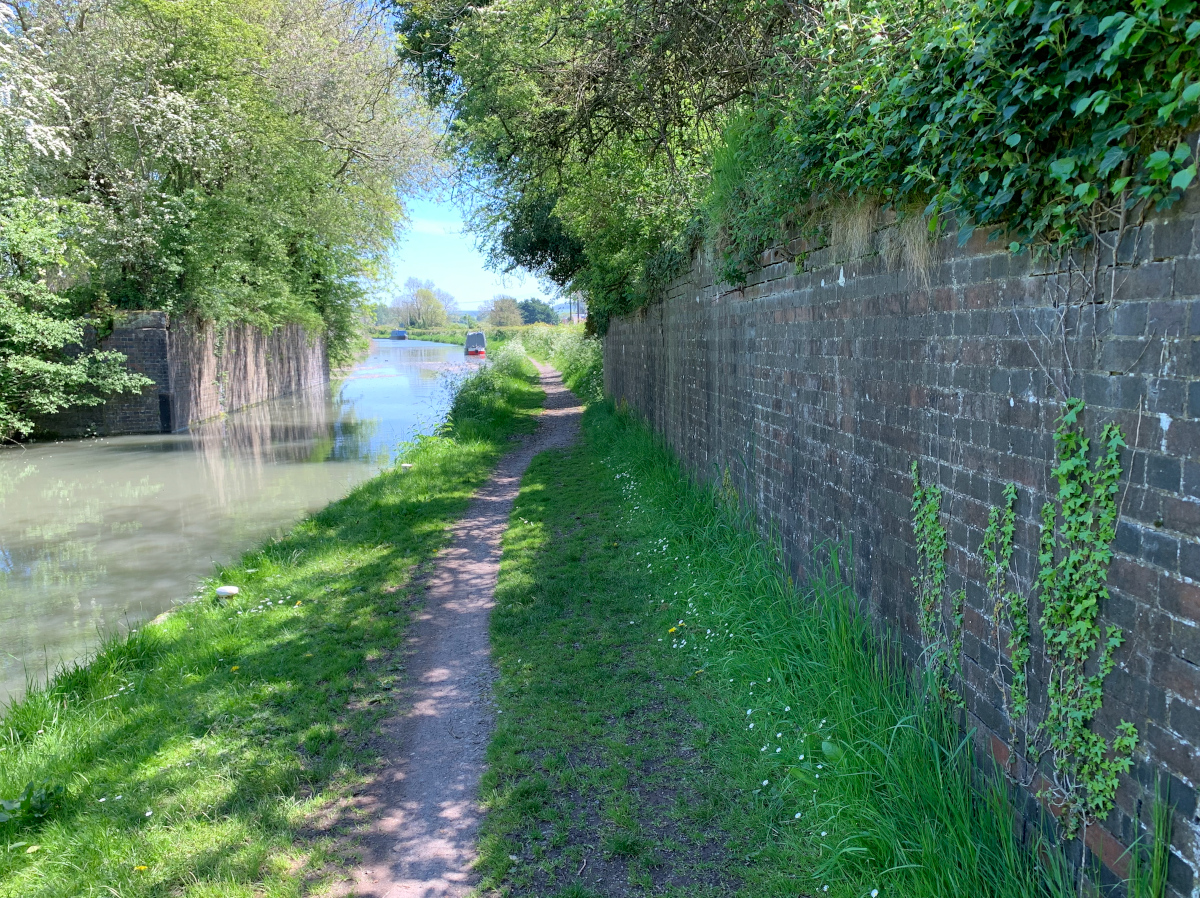| Re: Mostly the South West. Disused Railways. Which should still be here today? Posted by grahame at 15:59, 29th October 2025 |  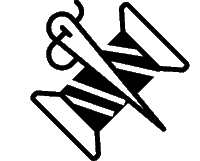   |
The 68 bus runs hourly between the two stations from around 7am to 7 pm and goes via the bus station. Far more convenient than a long walk, especially in the rain
Yes - although the time I tried to catch it - from the Saturday Melksham to Weymouth train - it was timetabled to leave Pen Mill two minutes before the train arrived and presumably did so, as saying across from the train in the hope ... it was gone. No obvious answer here; the resultant road walk out to Yeovil Junction with the bus gone did not feel very safe.
| Re: Mostly the South West. Disused Railways. Which should still be here today? Posted by bradshaw at 14:06, 29th October 2025 |     |
The 68 bus runs hourly between the two stations from around 7am to 7 pm and goes via the bus station. Far more convenient than a long walk, especially in the rain
| Re: Mostly the South West. Disused Railways. Which should still be here today? Posted by grahame at 11:54, 29th October 2025 |     |
One was investigated in the 1980s. The aim was a platform where the Clifton Maybank siding left the main line. However, nothing came of it.
Having to avoid crossing live railway line would have meant that you would walk past what is now the Yeovil Heritage Centre, under the main line and up the slope to Junction station. This is about 1km in length and not really practical.
Having to avoid crossing live railway line would have meant that you would walk past what is now the Yeovil Heritage Centre, under the main line and up the slope to Junction station. This is about 1km in length and not really practical.
Indeed. However - that's over twice the distance as the crow flies, which is just a smidgin over the length or a Eurostar train which we are expected to traipse along with all our luggage.
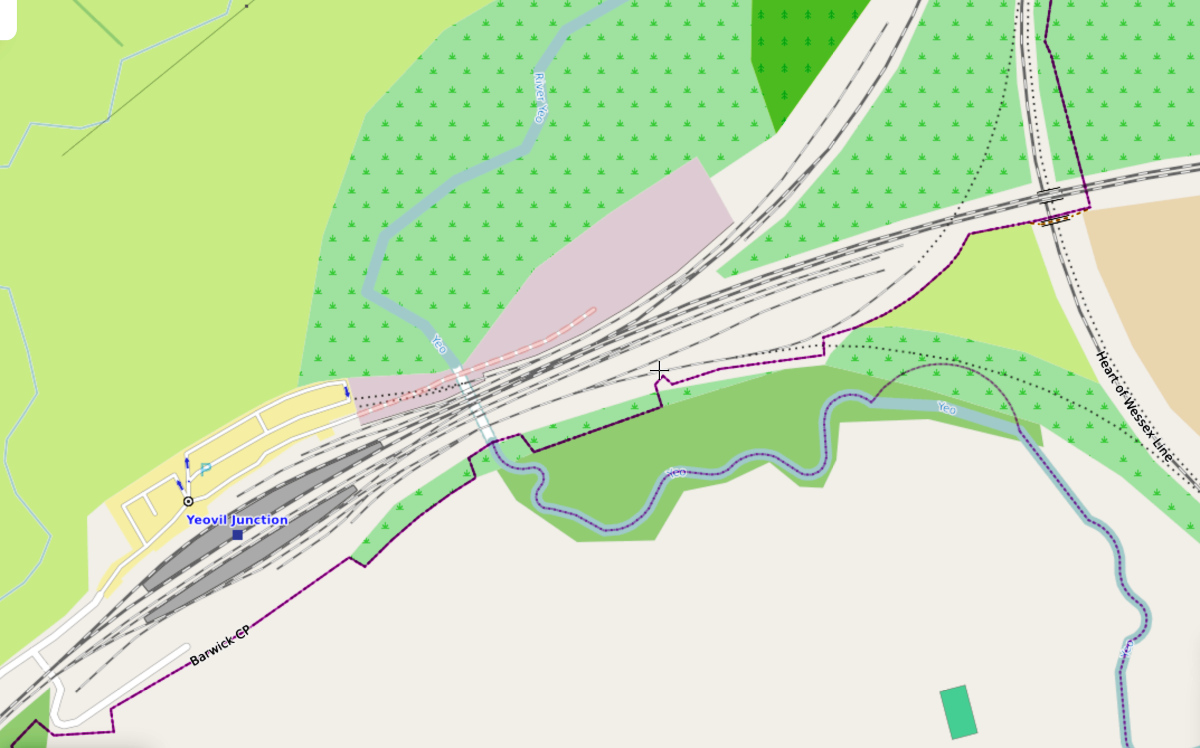
| Re: Mostly the South West. Disused Railways. Which should still be here today? Posted by bradshaw at 08:56, 29th October 2025 |     |
One was investigated in the 1980s. The aim was a platform where the Clifton Maybank siding left the main line. However, nothing came of it.
Having to avoid crossing live railway line would have meant that you would walk past what is now the Yeovil Heritage Centre, under the main line and up the slope to Junction station. This is about 1km in length and not really practical.
I mentioned the scheme in an article I wrote for Modern Railways some years back.
The photo shows the Yeovil shuttle in its various guises, linking up with Number 19
It is one of the slides I will be showing at the Yeovil Heritage Centre’s agm this evening when I am talking on the Wilts, Somerset and Weymouth Railway.
| Re: Mostly the South West. Disused Railways. Which should still be here today? Posted by grahame at 08:16, 29th October 2025 |     |
19. Yeovil Town station.
Convenient for the centre of town as the name suggests, but probably the least worst through route to have lost in Yeovil. Passengers travelling Taunton to Yeovil or vv on the 54 bus may not agree, with the through journey taking about 50% longer than the train used to, but Langport is the only significant centre of population on the closed route and, who knows, maybe Langport will regain a station (shared with Somerton) on the still-open Taunton - Castle Cary line.
Convenient for the centre of town as the name suggests, but probably the least worst through route to have lost in Yeovil. Passengers travelling Taunton to Yeovil or vv on the 54 bus may not agree, with the through journey taking about 50% longer than the train used to, but Langport is the only significant centre of population on the closed route and, who knows, maybe Langport will regain a station (shared with Somerton) on the still-open Taunton - Castle Cary line.
When connections work, Yeovil (Pen Mill) to Taunton can be done in just over 40 minutes by train with a change at Castle Cary. The 22:21 this evening, 8 minute change at Castle Cary, 23:02 into Taunton. Problem is that connections don't always work ... and where the timetable suggest one, even an official one, there's the possibility that you'll have time to kill at Castle Cary.
It was never there, but perhaps Yeovil needs a "Yeovil Junction Low Level Platform" between Pen Mill and Thornford, with slope / steps / path to the main junction station.
| Re: Mostly the South West. Disused Railways. Which should still be here today? Posted by brooklea at 08:05, 29th October 2025 |     |
19. Yeovil Town station.
Convenient for the centre of town as the name suggests, but probably the least worst through route to have lost in Yeovil. Passengers travelling Taunton to Yeovil or vv on the 54 bus may not agree, with the through journey taking about 50% longer than the train used to, but Langport is the only significant centre of population on the closed route and, who knows, maybe Langport will regain a station (shared with Somerton) on the still-open Taunton - Castle Cary line.
| Re: Mostly the South West. Disused Railways. Which should still be here today? Posted by TonyN at 21:15, 28th October 2025 |     |
18, Newquay Harbour tramway
| Re: Mostly the South West. Disused Railways. Which should still be here today? Posted by Oxonhutch at 19:54, 28th October 2025 |     |
If it *is* Coryton, isn't it a singular example as the onward line at its extremity is in the 'Built but the junction to its destination never brought into use?
Cardiff Railway, and I believe only one train ever made the connection to the Taff Valley?, but in only one direction. The huge iron viaduct was scrapped during the War.
| Re: Mostly the South West. Disused Railways. Which should still be here today? Posted by grahame at 19:37, 28th October 2025 |     |
Lots of good, correct answers:
1. Hayling Island branch
CyclingSid, and with a fascinating insight
confirmed by eightonedee
2. Foxhangers on the Devizes line
Chris from Nailsea (K&A, line not identified)
3. Weymouth to Portland Line at Wyke Regis
eightonedee
4. Yarmouth IOW
Ray951
5. Yatton on the Strawberry Line
ChrisfN
6. Cortyon
MarkA - with an interesting example of a line buit and not used (my understanding is that it was used by a single train)
10. Hamble
Ray951
Interestimg further data from CyclingSid
11. Seend Cleeve, tramway to Seend Iron Works
bradshaw
12. Tramway - Caen Hill, Devizes
bradshaw - also noting tramway
Identified as Prison Bridge by Chris from Nailsea
13. Mangotsfield
chuffed
14. Near Midford, Somerset and Dorset
johnneyw, and yes it could make a useful part of the network
15. Ventnor
PhilWakely
16. Oxford - LNWR Station
ChrisB
20. Midland and South West Juntion towards Ludgershall
Kennet and Avon, yes CfN - but what line
| Re: Mostly the South West. Disused Railways. Which should still be here today? Posted by bradshaw at 19:32, 28th October 2025 |     |
11 Seend Cleeve, tramway to Seend Iron Works
| Re: Mostly the South West. Disused Railways. Which should still be here today? Posted by Chris from Nailsea at 19:11, 28th October 2025 |     |
20. Kennet and Avon Canal, again.

| Re: Mostly the South West. Disused Railways. Which should still be here today? Posted by CyclingSid at 18:42, 28th October 2025 |     |
Hamble (No.10) was a freight only line. Built for the Hamble-le-Rice oil terminal. The oil terminal was fed from Fawley and Wytch Farm oil field (near Poole Harbour). There was also a connection to the Government Pipeline System. Distribution is now done by road tanker.
Hamble station on the Southampton to Fareham line is still open for passenger traffic, allowing for the fact that it not near the centre of population.
| Re: Mostly the South West. Disused Railways. Which should still be here today? Posted by johnneyw at 18:31, 28th October 2025 |     |
14 reminds me of near Midford Station on the Two Tunnels path from Bath to Wellow. The line could have been a useful contribution to our national rail network today had it survived.
| Re: Mostly the South West. Disused Railways. Which should still be here today? Posted by eightonedee at 18:15, 28th October 2025 |     |
1 looks like the Hayling Island branch, and 3 looks like the Portland branch in Weymouth, coming up to Nothe Fort.
(Sorry Sid - just seen you "got" Hayling already! I recall that there was a pub called "the Hayling Billy" on the island that had a Stroudley Terrier locomotive outside as an outsized pub sign for some years)
| Re: Mostly the South West. Disused Railways. Which should still be here today? Posted by Mark A at 17:53, 28th October 2025 |     |
If it *is* Coryton, isn't it a singular example as the onward line at its extremity is in the 'Built but the junction to its destination never brought into use?
Mark
| Re: Mostly the South West. Disused Railways. Which should still be here today? Posted by Mark A at 17:46, 28th October 2025 |     |
6 makes me think Coryton.
Mark
| Re: Mostly the South West. Disused Railways. Which should still be here today? Posted by Chris from Nailsea at 17:23, 28th October 2025 |     |
I - intentionally - did not specify that, Chris ... these are much more difficult in the most part than the pictures of infrastructure still in use and if someone identified multiple ones, good luck to them.
Fair enough, grahame - I'll fire off another couple here, then:
5. The Strawberry Line - now a cycle path - looking back towards Yatton station.
12. Kennet and Avon Canal, Prison Bridge, Devizes (near Caen Hill, Seend and all that).
CfN.

| Re: Mostly the South West. Disused Railways. Which should still be here today? Posted by chuffed at 17:15, 28th October 2025 |     |
13. Mangotsfield ?
| Re: Mostly the South West. Disused Railways. Which should still be here today? Posted by grahame at 17:03, 28th October 2025 |     |
Erm ... are we still working to the 'one suggestion only, for the first 24 hours, please' convention here?
CfN.
CfN.

I - intentionally - did not specify that, Chris ... these are much more difficult in the most part than the pictures of infrastructure still in use and if someone identified multiple ones, good luck to them.
| Re: Mostly the South West. Disused Railways. Which should still be here today? Posted by bradshaw at 17:03, 28th October 2025 |     |
12 old tramway route at Caen Flight, Devizes
| Re: Mostly the South West. Disused Railways. Which should still be here today? Posted by CyclingSid at 16:21, 28th October 2025 |     |
Much as many people would like it the bridge to Hayling Island (No.1) is unlikely to be ever rebuilt for a railway. I grew up on the island and we rarely used the railway. It was on "the wrong side of the island". There was a good local Southdown bus route on our side. Now 60 years on there is no railway, and no bus service on what was our side of the island. The roads are crammed, and beyond that on summer weekends. Mind you we could never really understand why people spent two or three hours queueing to get on the island, a couple of hours sitting on an oil polluted beach (local shops did a roaring trade selling bottles of oil remover). And then two or three hours queueing to get off the island, followed by the drive home to Reading or somewhere.
| Re: Mostly the South West. Disused Railways. Which should still be here today? Posted by Chris from Nailsea at 16:01, 28th October 2025 |     |
Erm ... are we still working to the 'one suggestion only, for the first 24 hours, please' convention here?
CfN.

| Re: Mostly the South West. Disused Railways. Which should still be here today? Posted by ray951 at 15:33, 28th October 2025 |     |
10. Hamble.
| Re: Mostly the South West. Disused Railways. Which should still be here today? Posted by ray951 at 15:32, 28th October 2025 |     |
4. Yarmouth, IOW
| Re: Mostly the South West. Disused Railways. Which should still be here today? Posted by ChrisB at 15:28, 28th October 2025 |     |
16. Oxford Swing Bridge
| Re: Mostly the South West. Disused Railways. Which should still be here today? Posted by PhilWakely at 15:16, 28th October 2025 |     |
15. Ventnor ?
| Re: Mostly the South West. Disused Railways. Which should still be here today? Posted by Chris from Nailsea at 15:11, 28th October 2025 |     |
It's not a disused railway, but ...
2. Kennet and Avon Canal, at Lower Foxhangers Bridge, Rowde.
CfN.

| Mostly the South West. Disused Railways. Which should still be here today? Posted by grahame at 14:45, 28th October 2025 |     |
In 1955 the British railway system had 20,000 miles of track and 6,000 stations. A steady trickle of railway closures increased in the 1950s turning into a torrent in the 1960s with the rationalization of our railway network under Dr. Richard Beeching, the chairman of British Railways from 1961 - 1965, and closures continued though at a slower rate into the 1970s, by which time there were around 12,000 miles of track and 2,200 stations left.
In the 1950s, 1960s and into the 1970s, commercial operation of the railways with a requirement for them to break even was the rule; funding from Government was seen as feeding a loss, without looking at the wider economic benefits brought to the areas served, nor the saving in the need to provide (funded by the government) a yet wider road network with a greater capacity. Transport was a profit/loss base, and not "Transport as a Service".
Something changed - a growing realisation that there was more to a railway line than the immediate profit or loss it made - that it really had some effect on the local economy. And whilst our countryside is littered with earthworks and bridges where trains used to go, and platforms where they used to stop but they now speed through, there are a few new shoots of re-openings. Not at anything like the speed or volume of closure that there once were, but a swinging back of the pendulum towards and through some re-openings. There is no doubt in my own mind that some lines and stations were ripe for closure. But there were others where the closure was a disgrace - sometime fuelled by the desire of "the road lobby" to help provide an environment in which roads needed to be built, and by a shorttermism.
Here are some pictures - all my own taken in recent years - of trackbeds where trans once ran. Can you identify any of them? Were they correct / logical closures? How much would that line be used today, and have changes the area served, has it survived? Is there any practical comeback of the line, or an equivalent, in the next 30 years?
1.
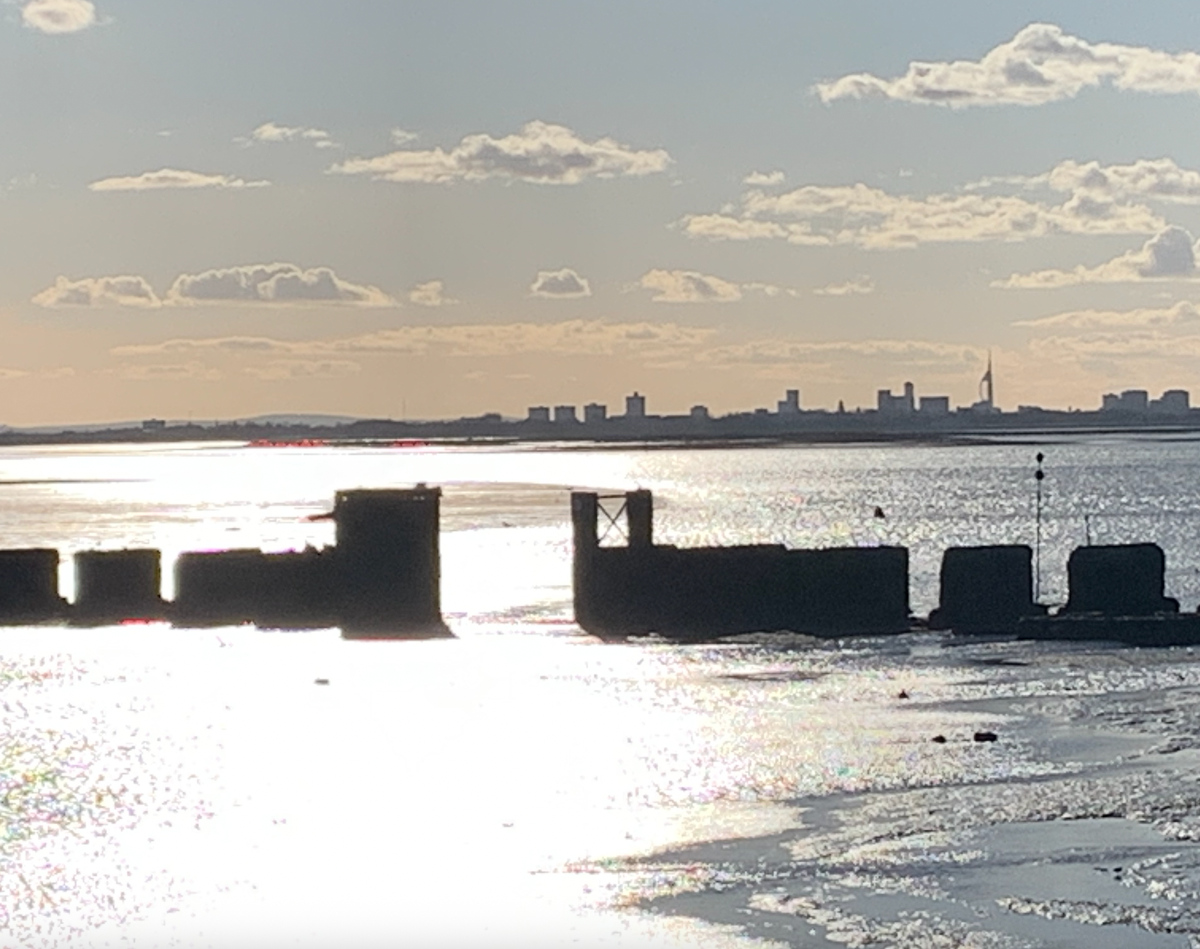
2.
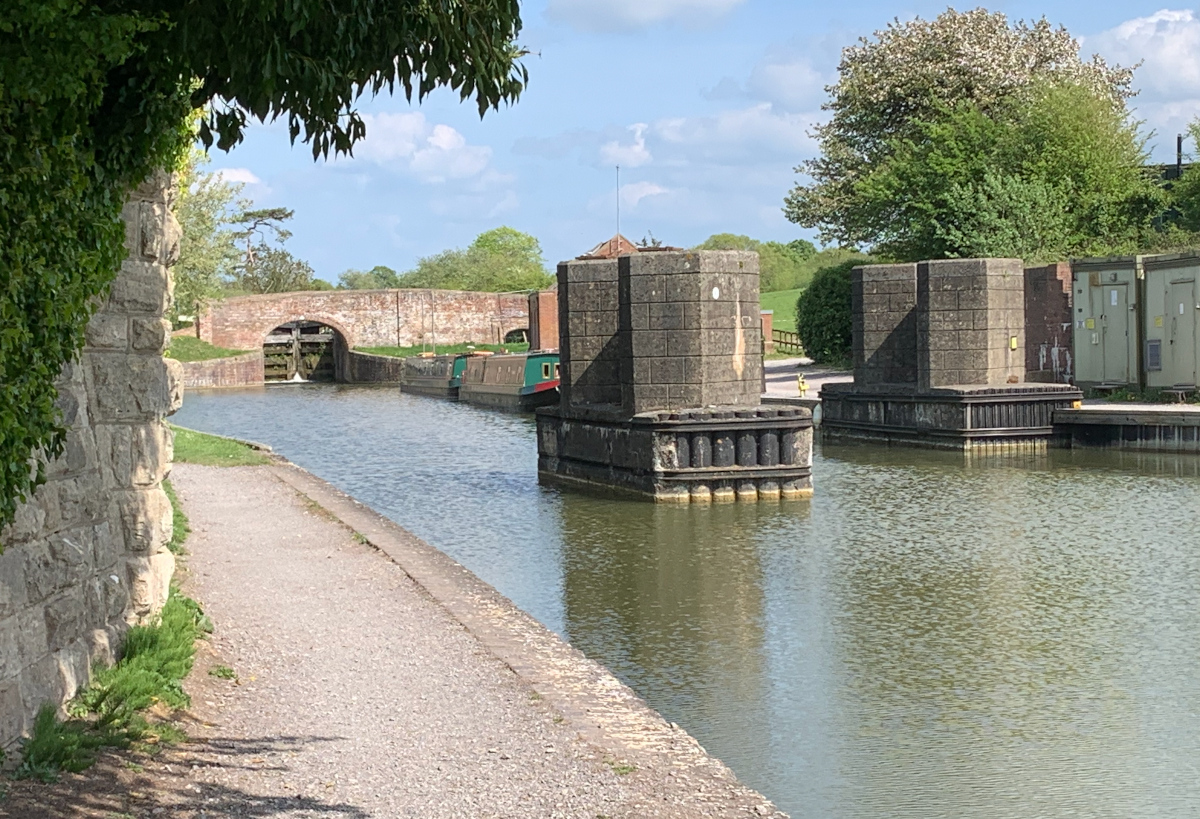
3.
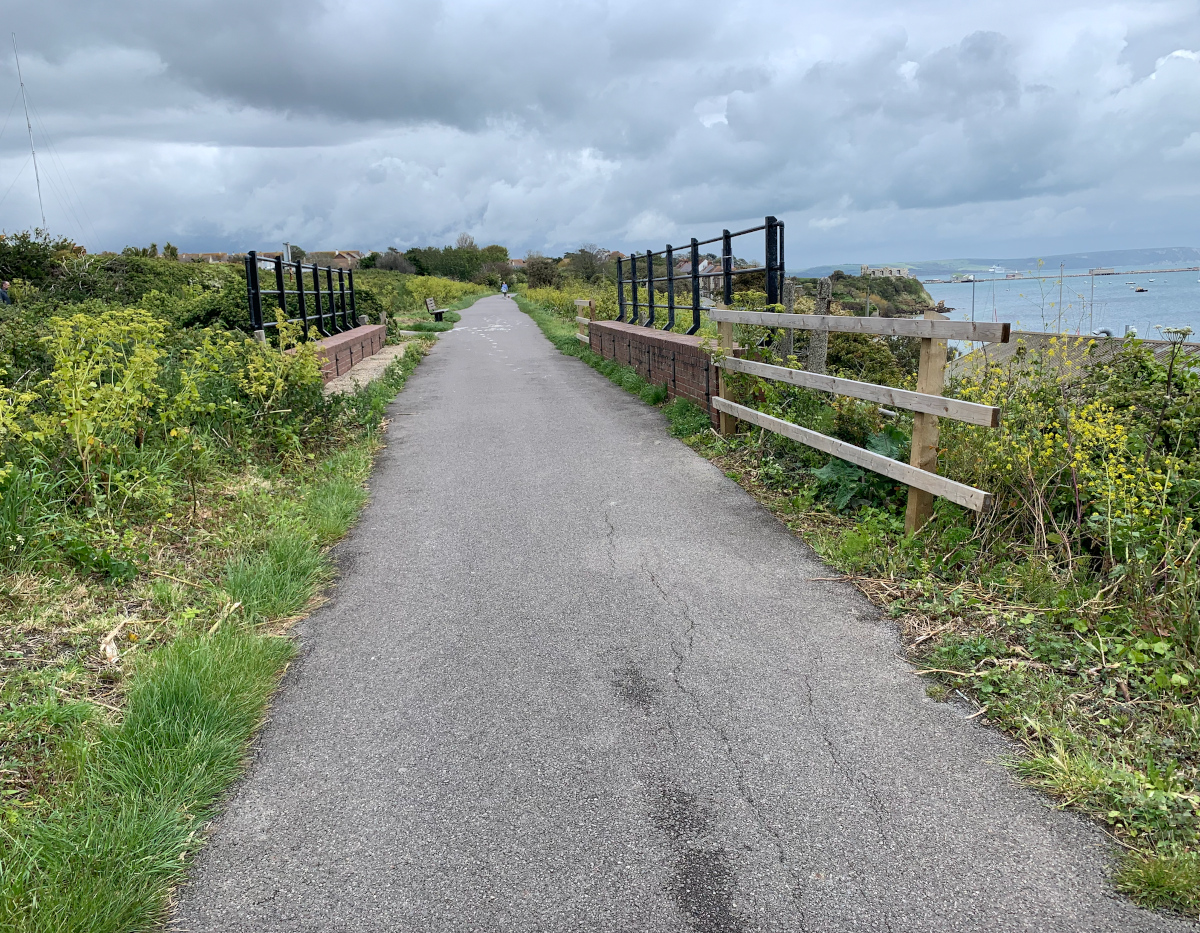
4.
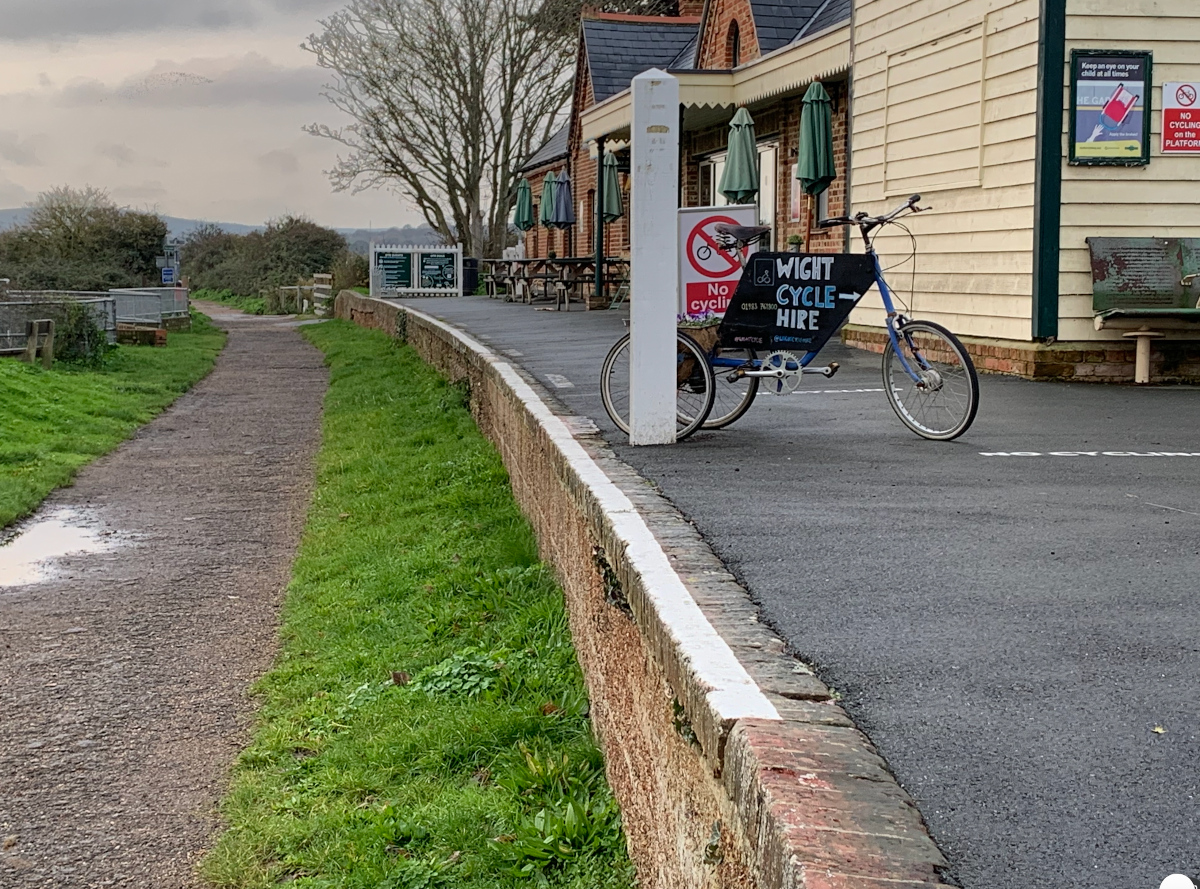
5.
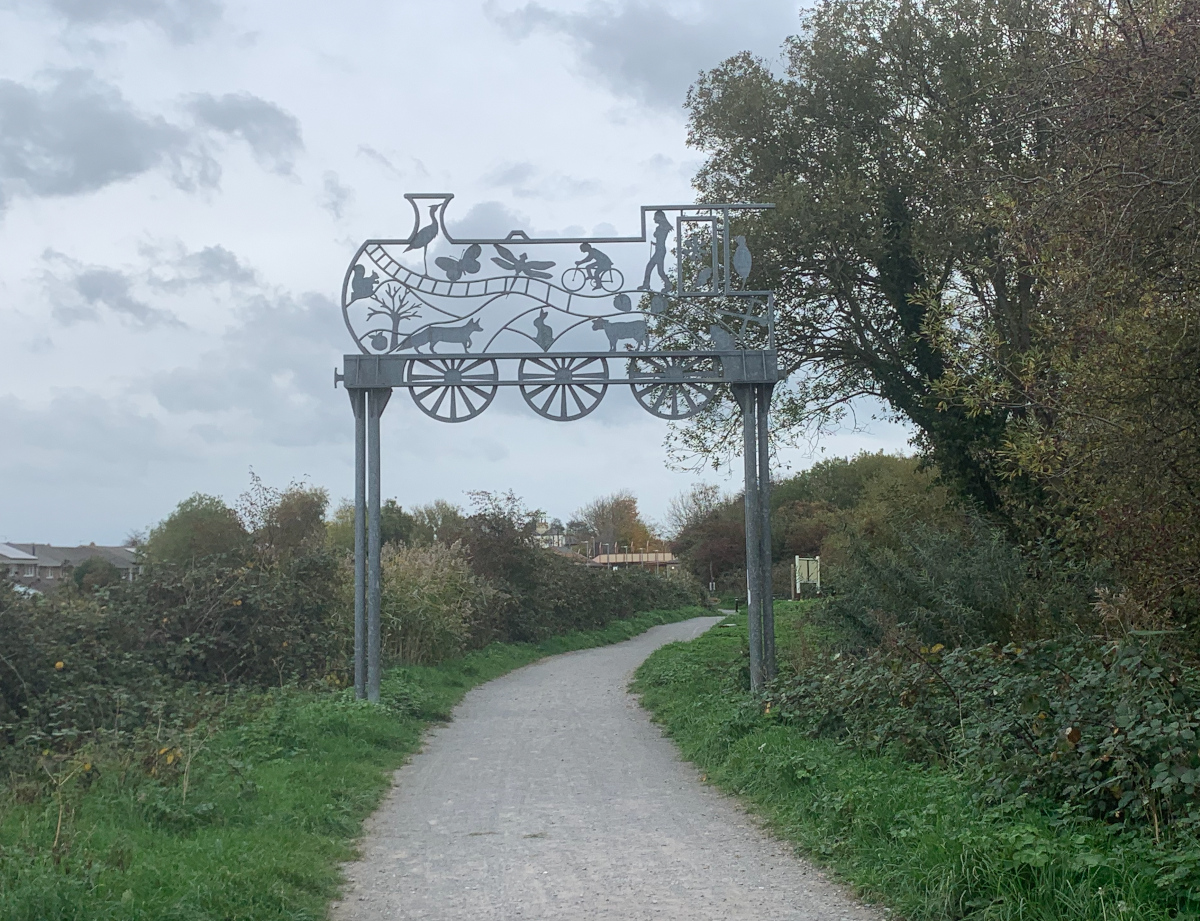
6.
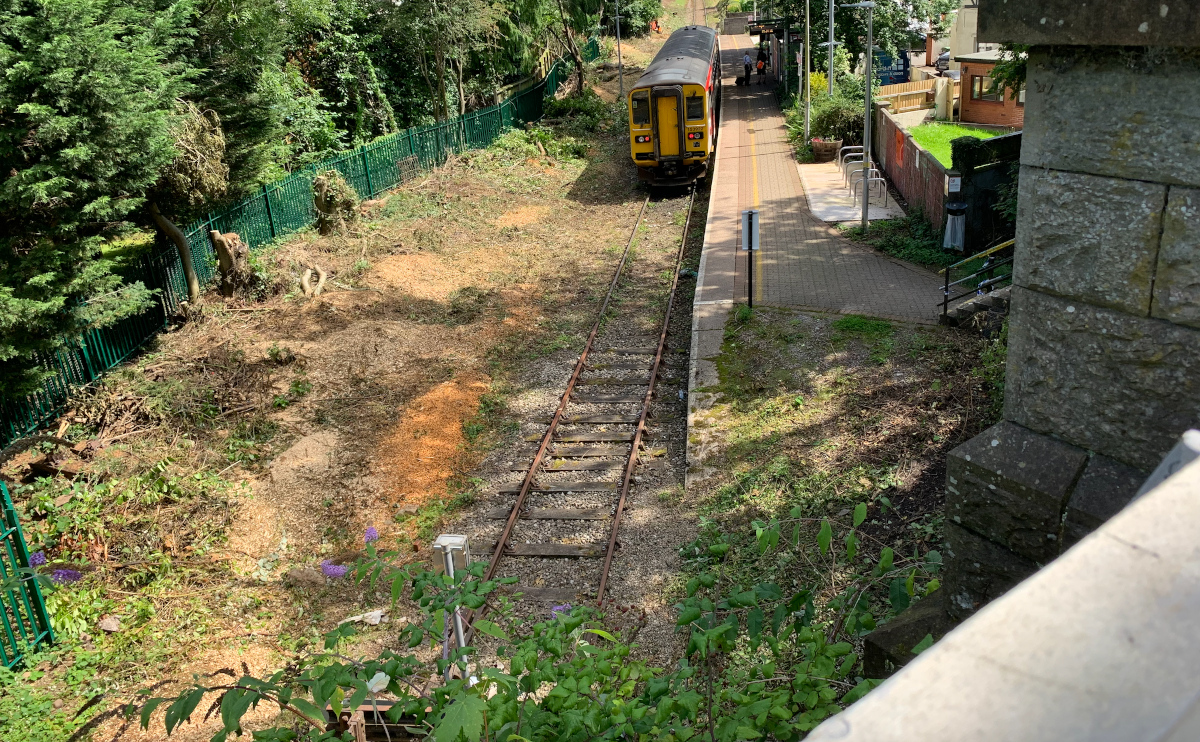
7.
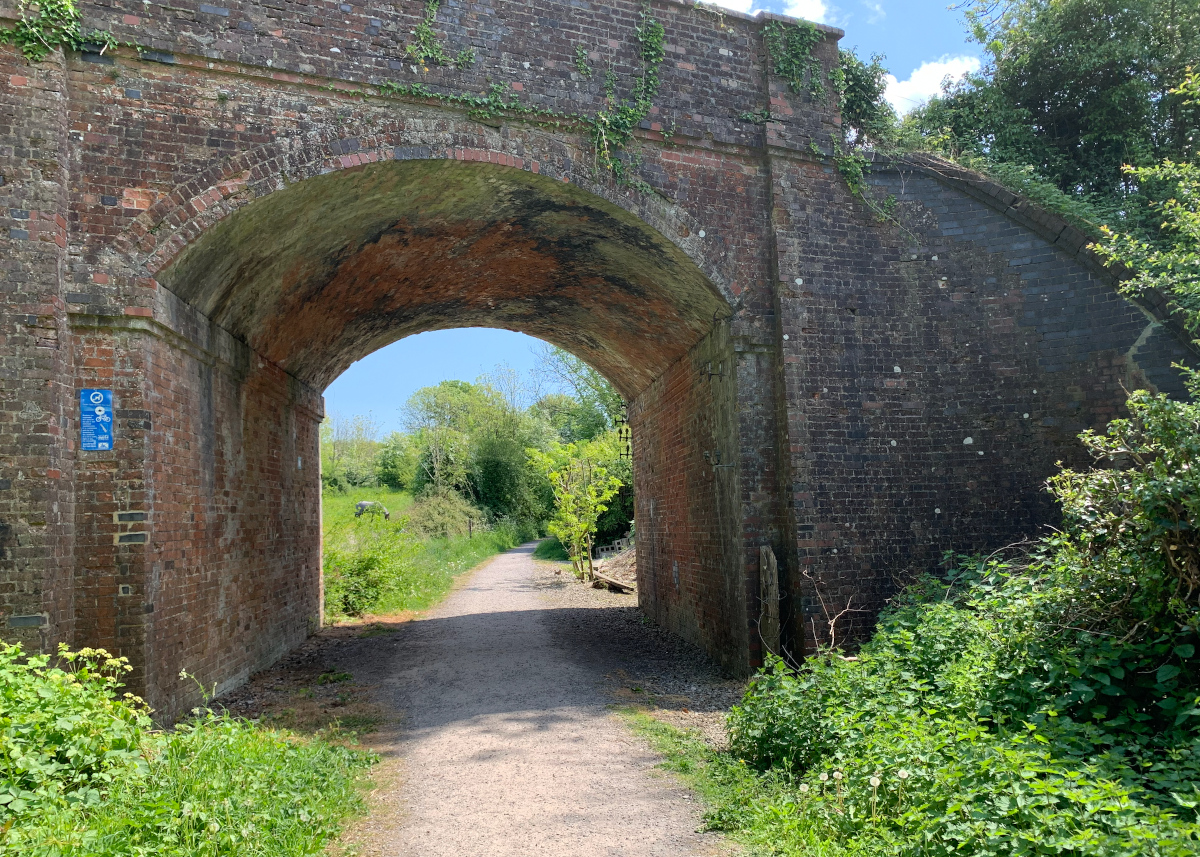
8.
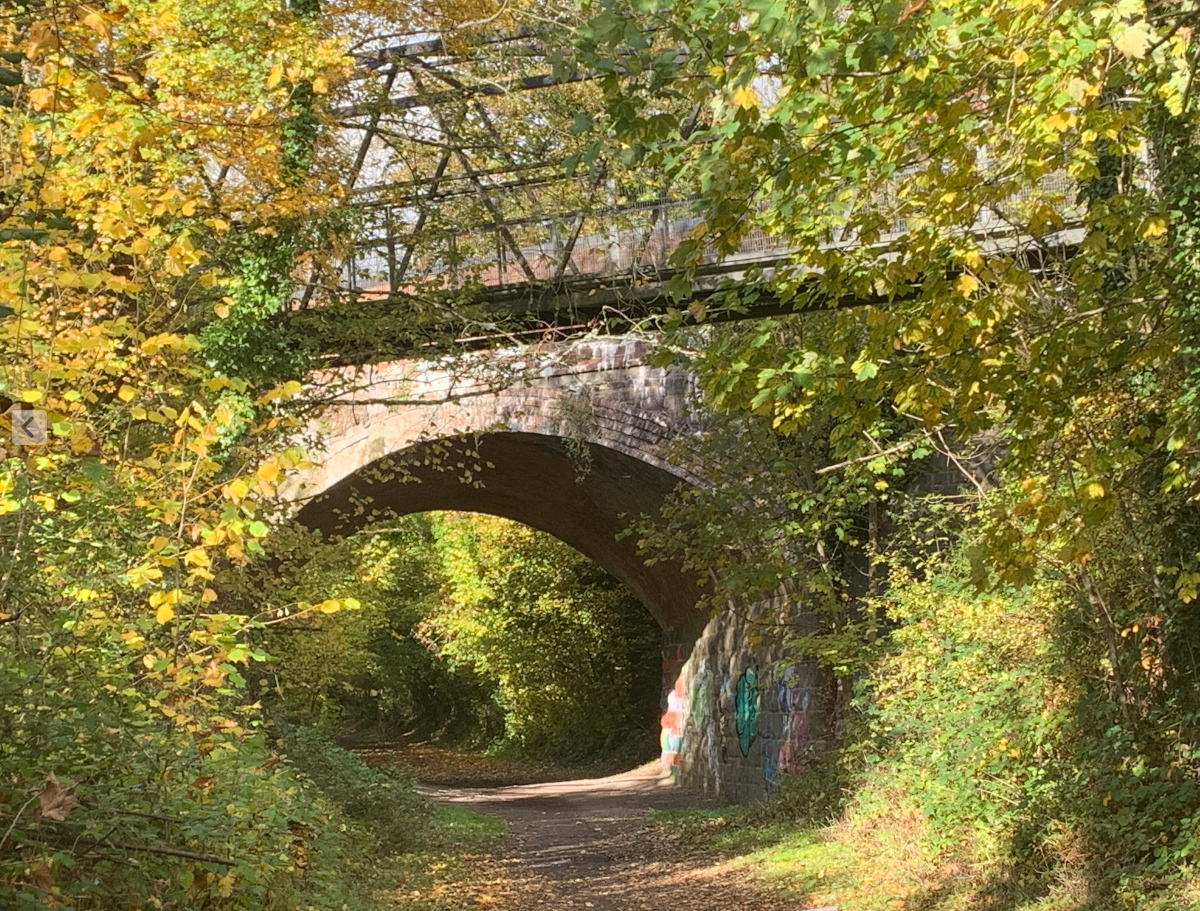
9.
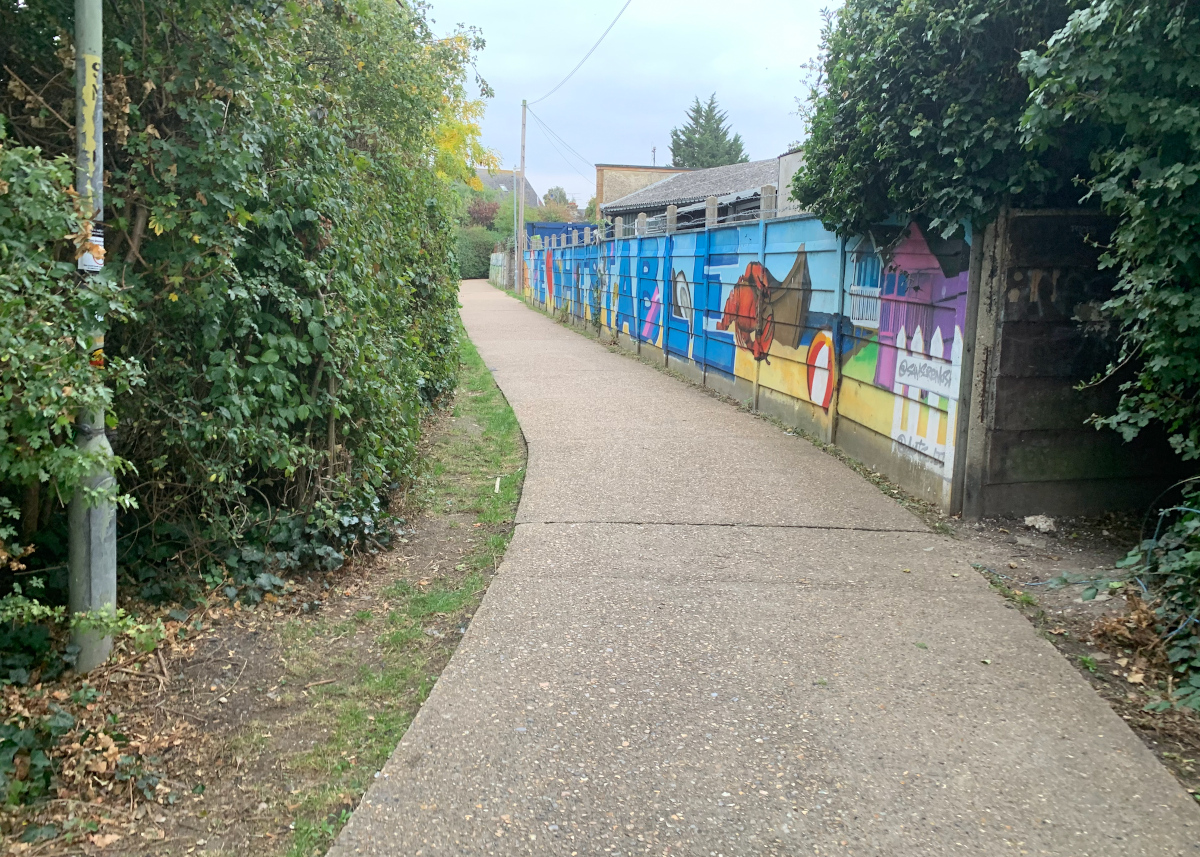
10.
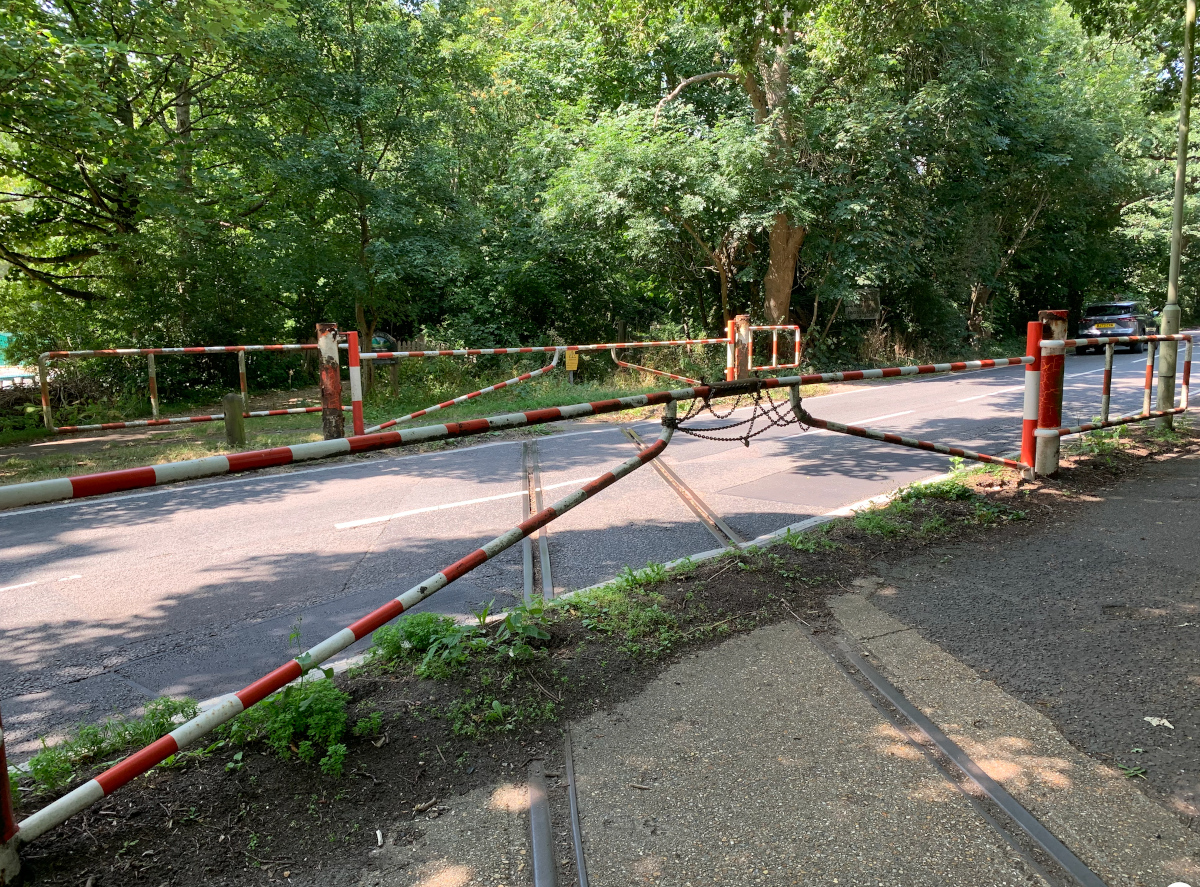
11.
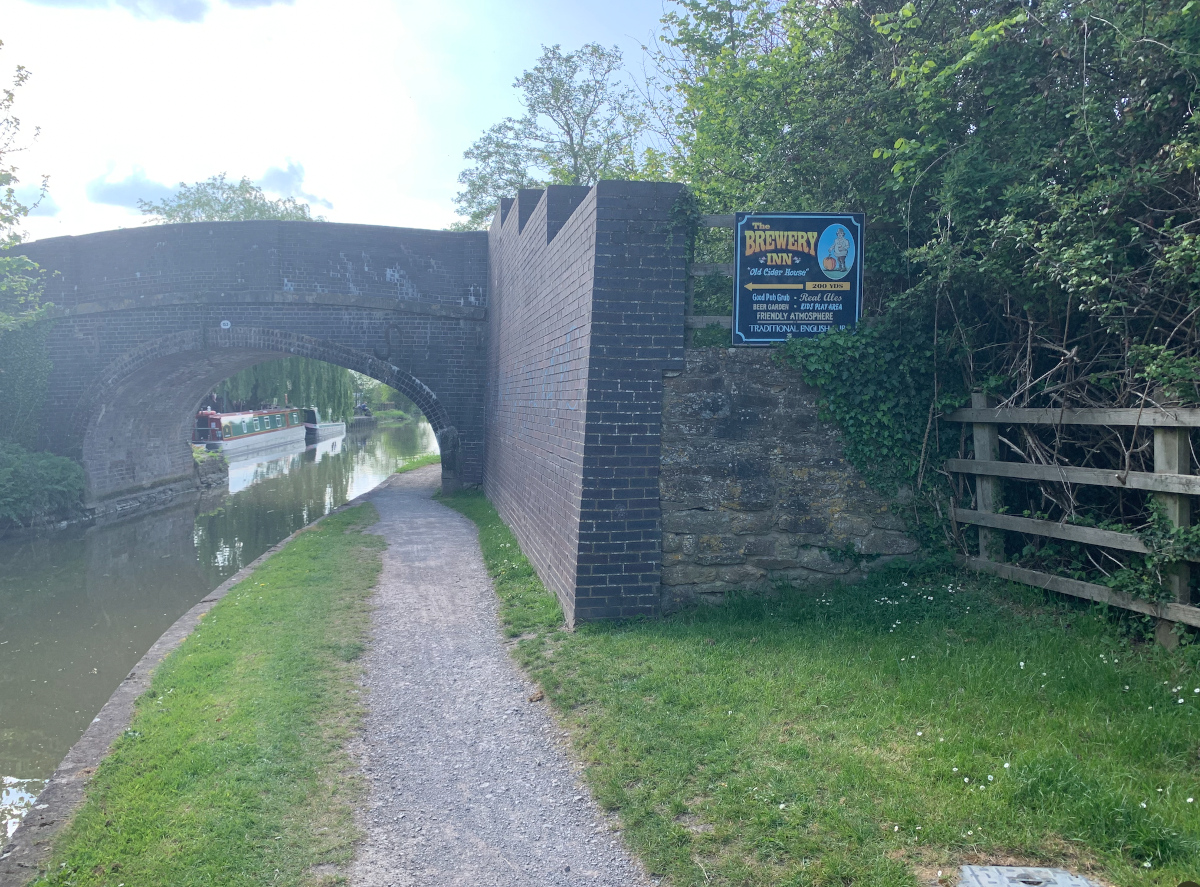
12.
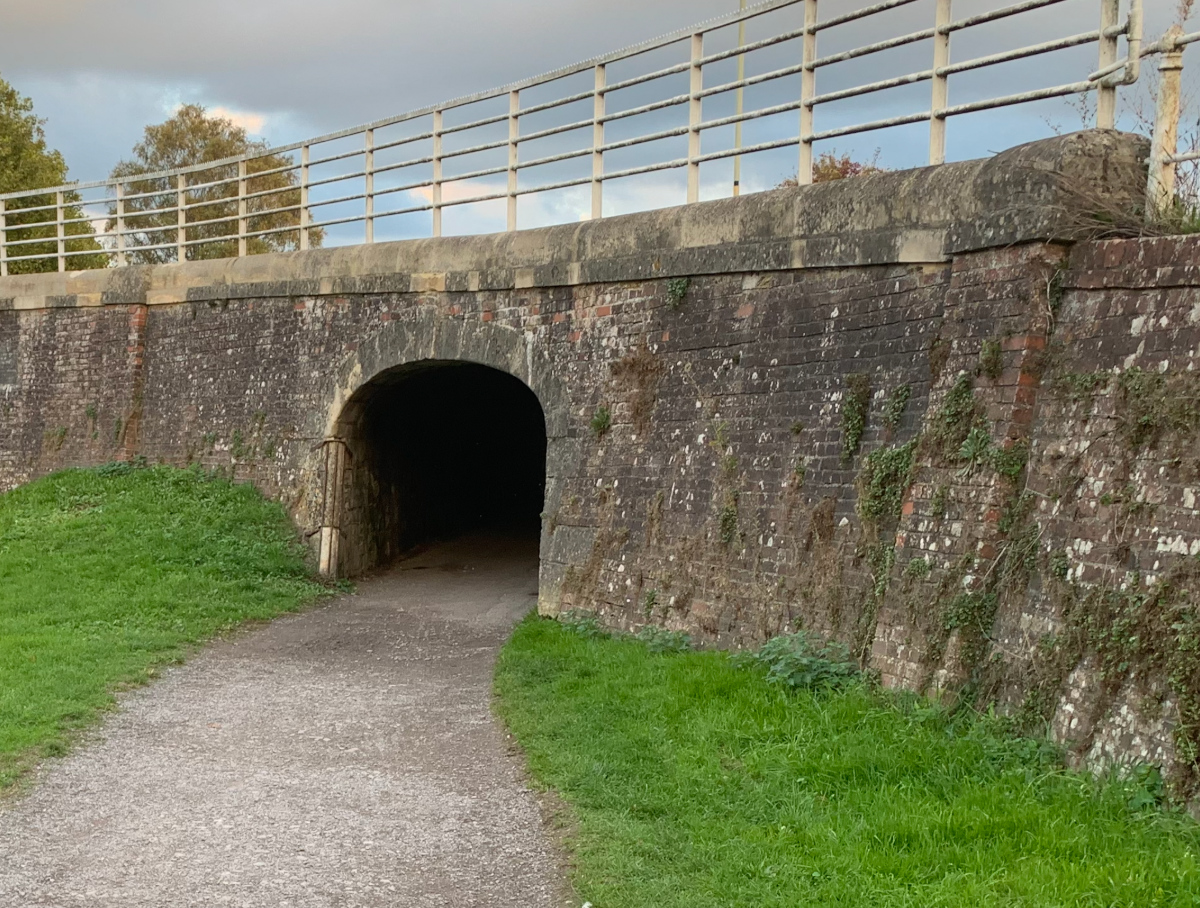
13.
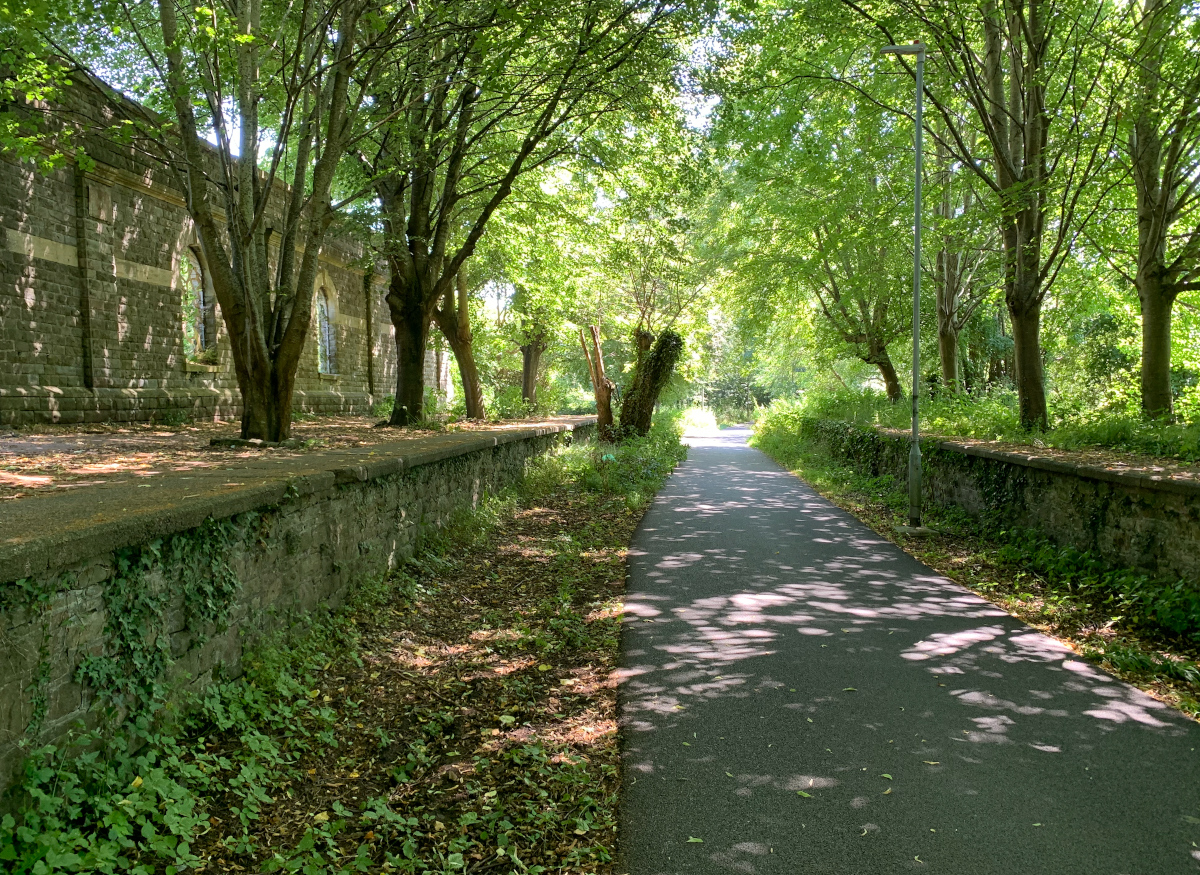
14.
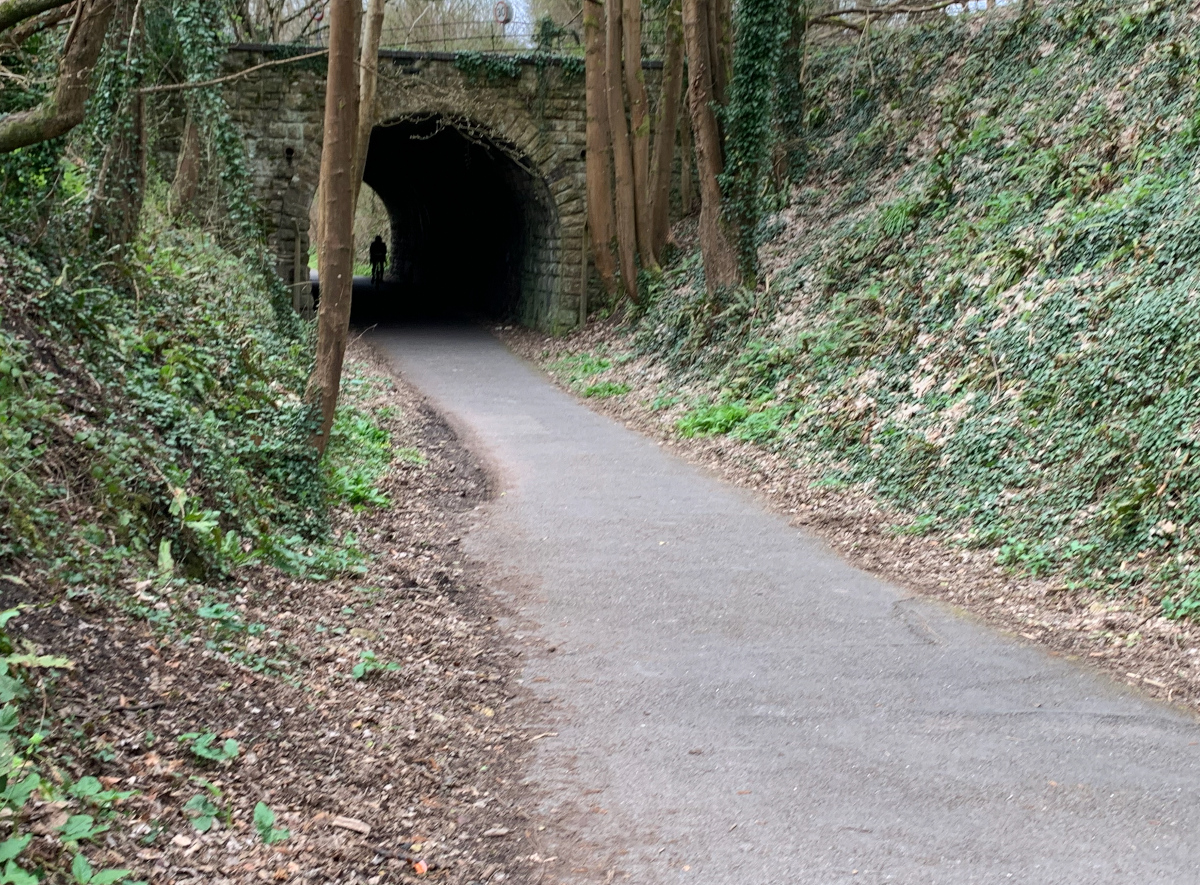
15.
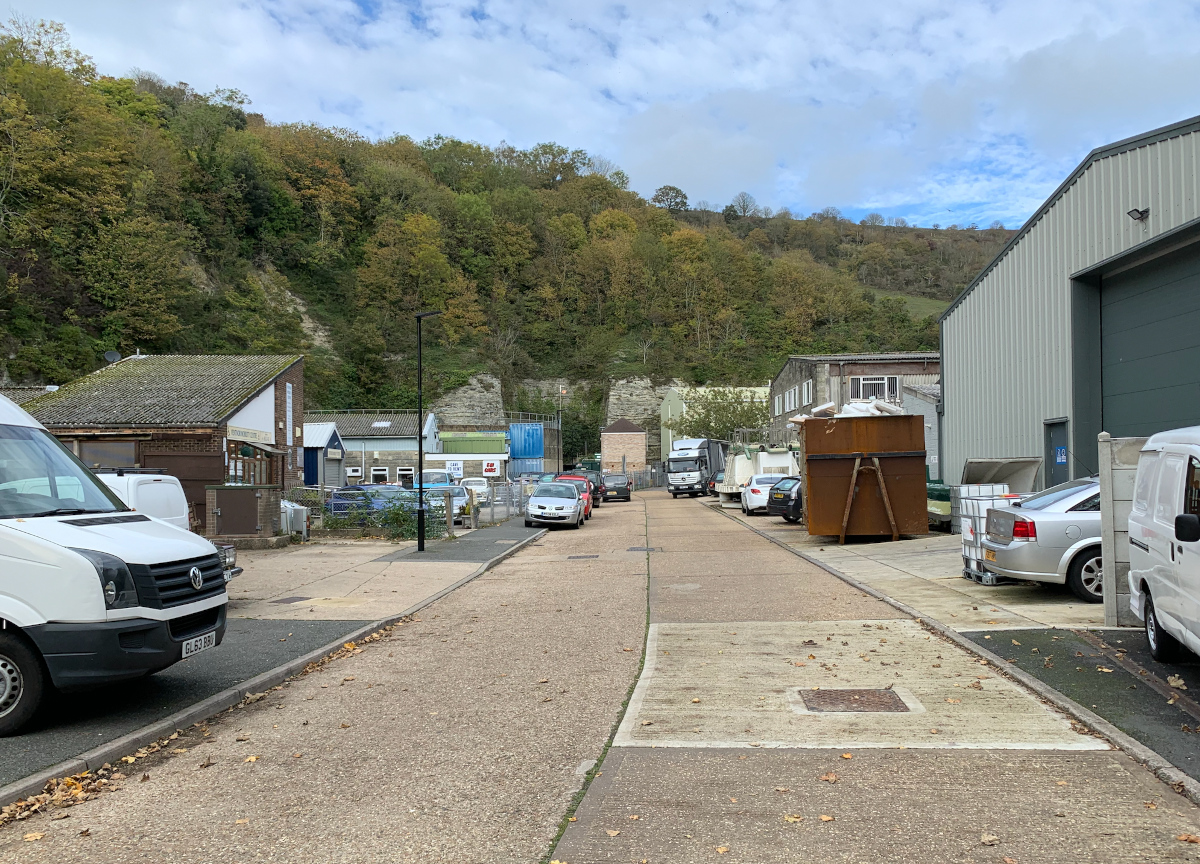
16.
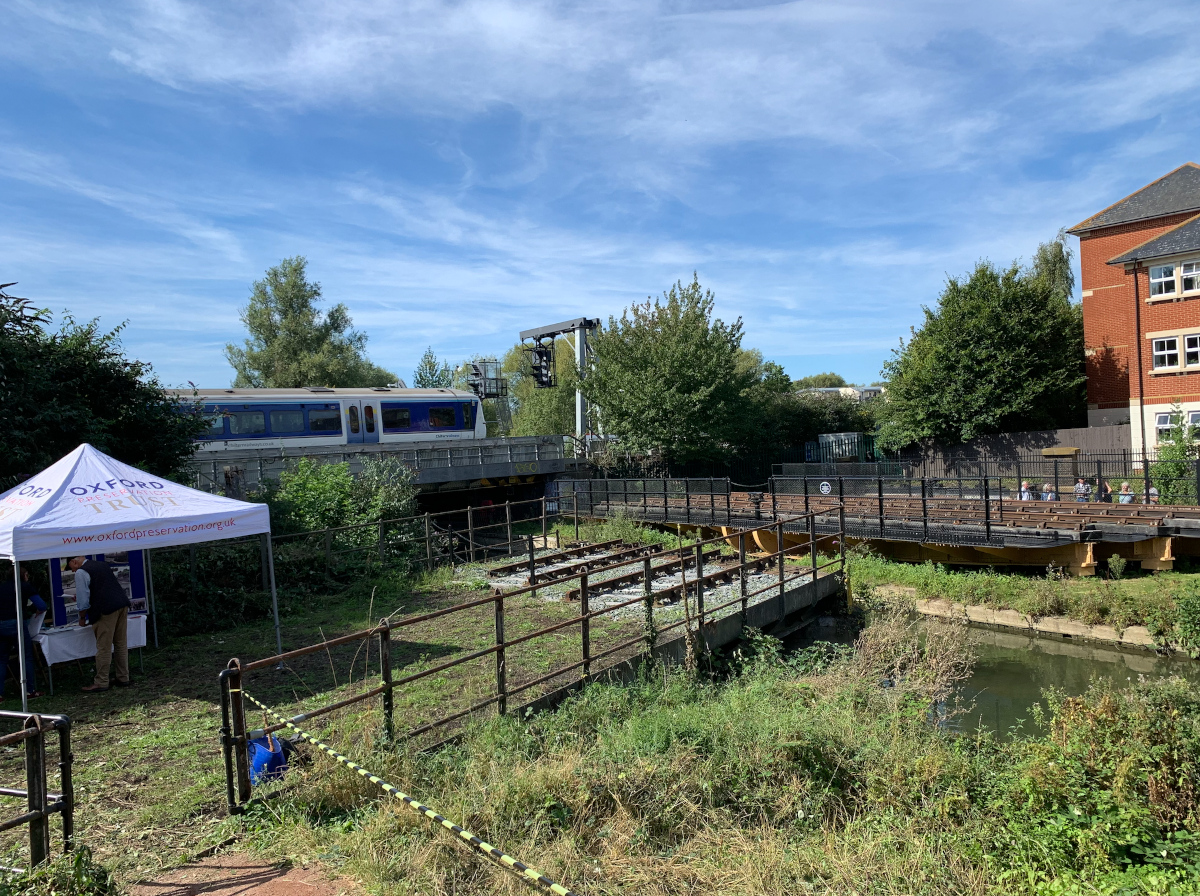
17.
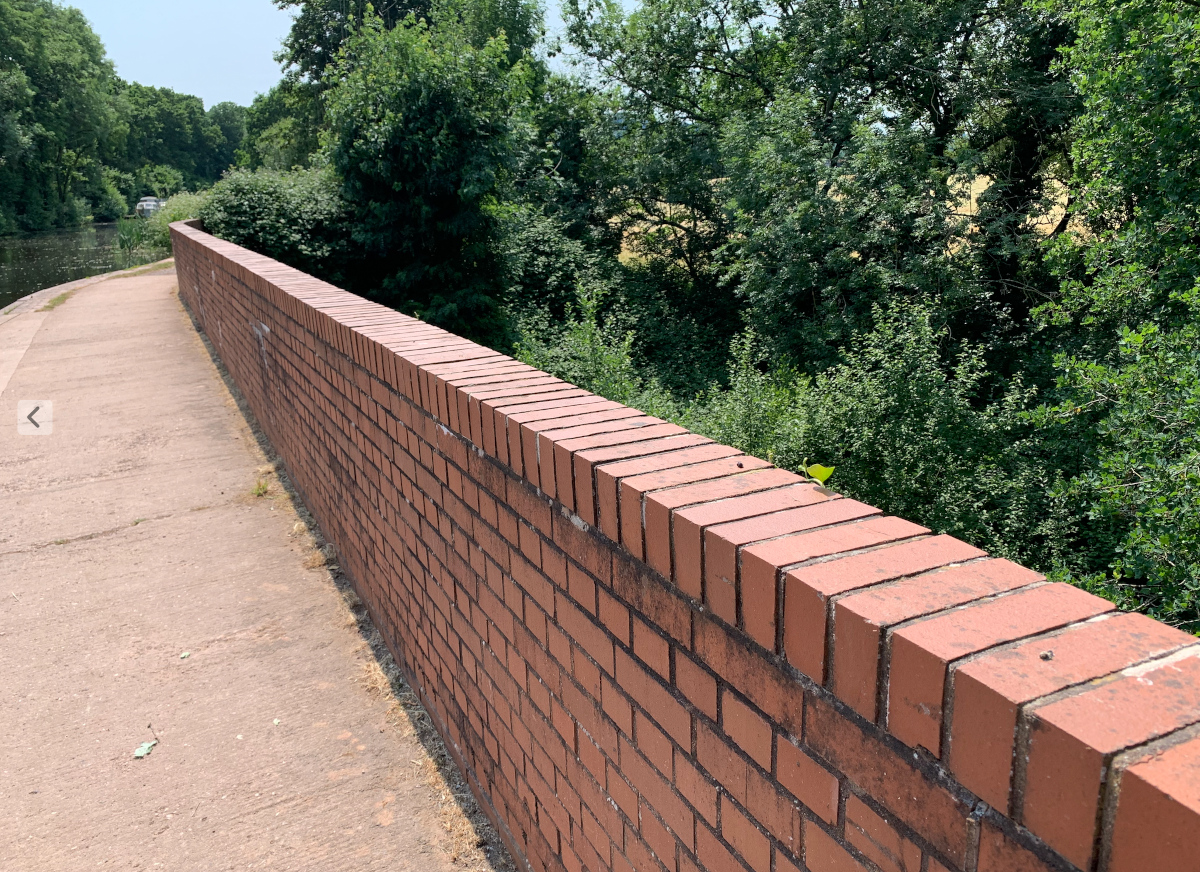
18.
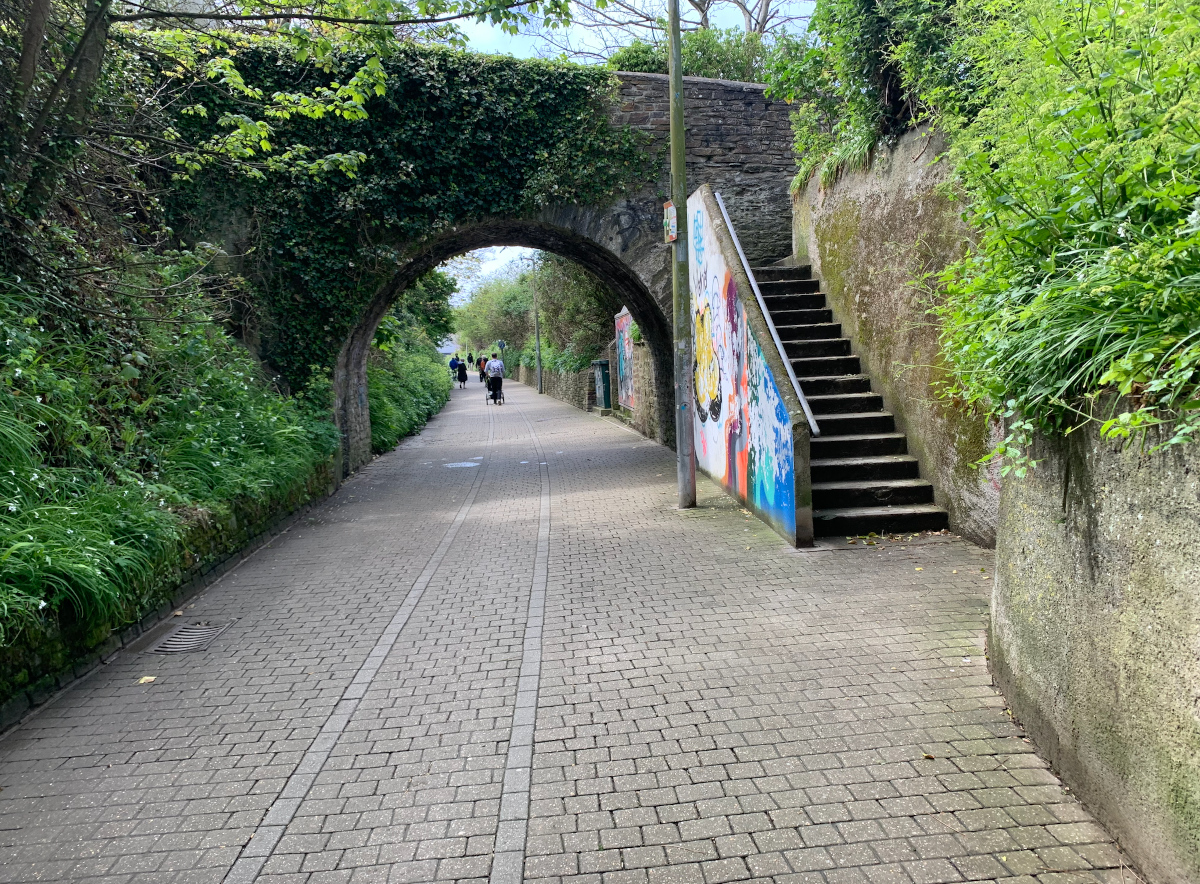
19.
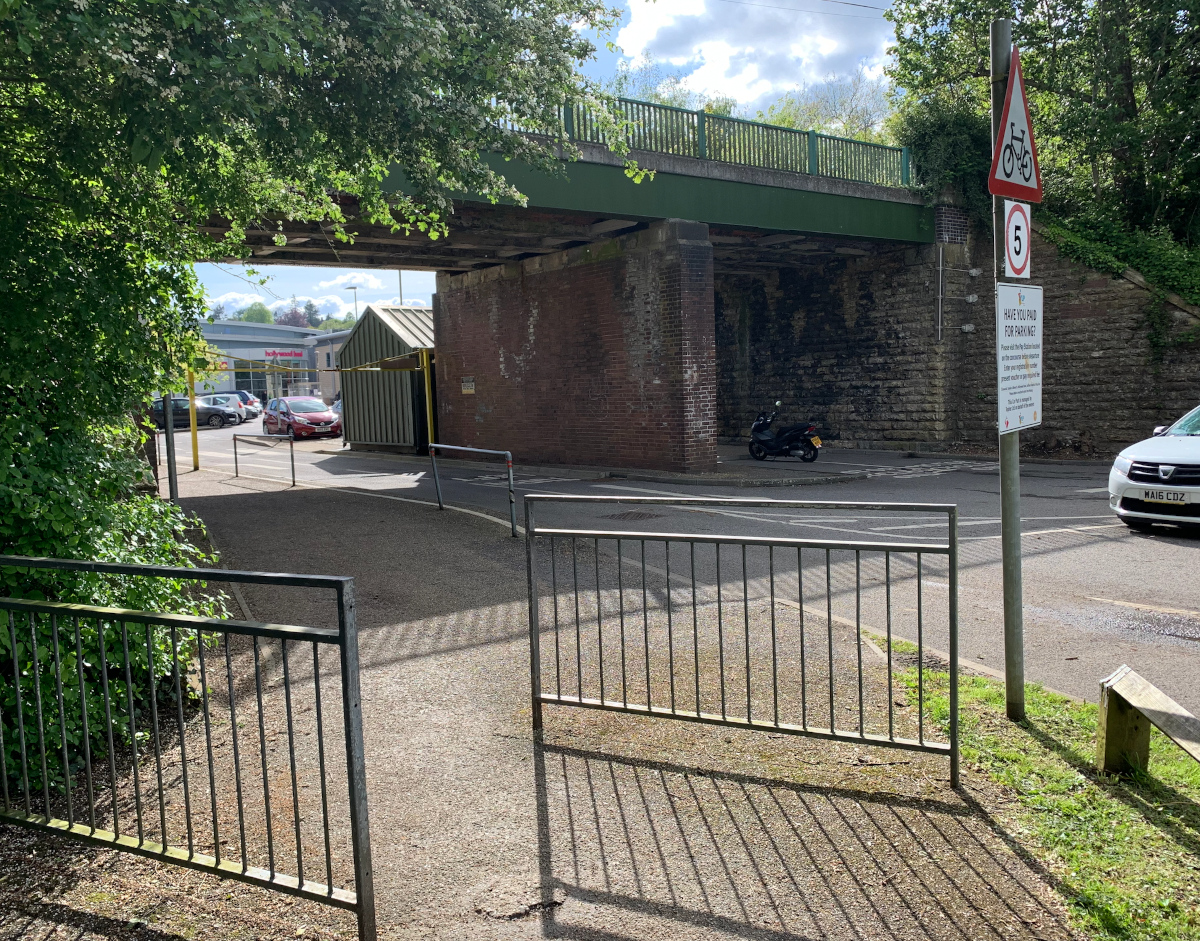
20.
